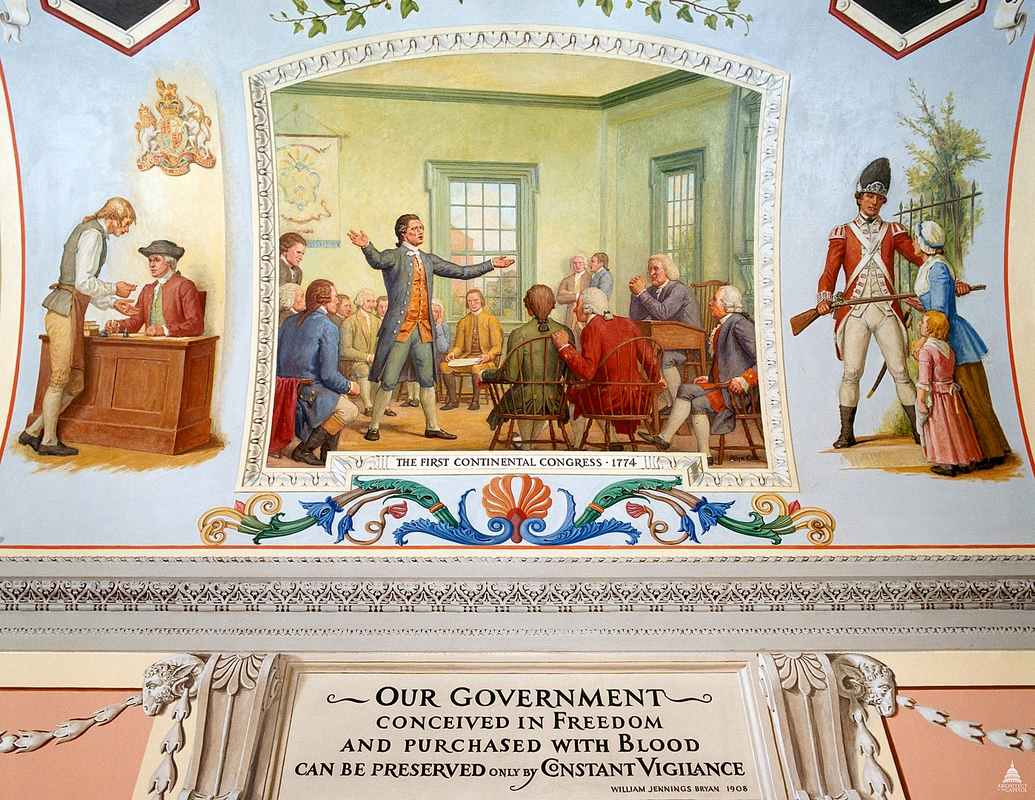A quarter millennium ago, the First Continental Congress was organized in Carpenter’s Hall, Philadelphia, after the British Navy implemented a blockade of Boston Harbor and the Parliament of Great Britain passed the punitive Intolerable Acts in response to the Boston Tea Party. The result of the Congress was the drawing up of the Continental Association, a proposal for an embargo on British trade. They also drew up a Petition to the King pleading for redress of their grievances and repeal of the Intolerable Acts. READ more about this milestone marker in our history… (1774)
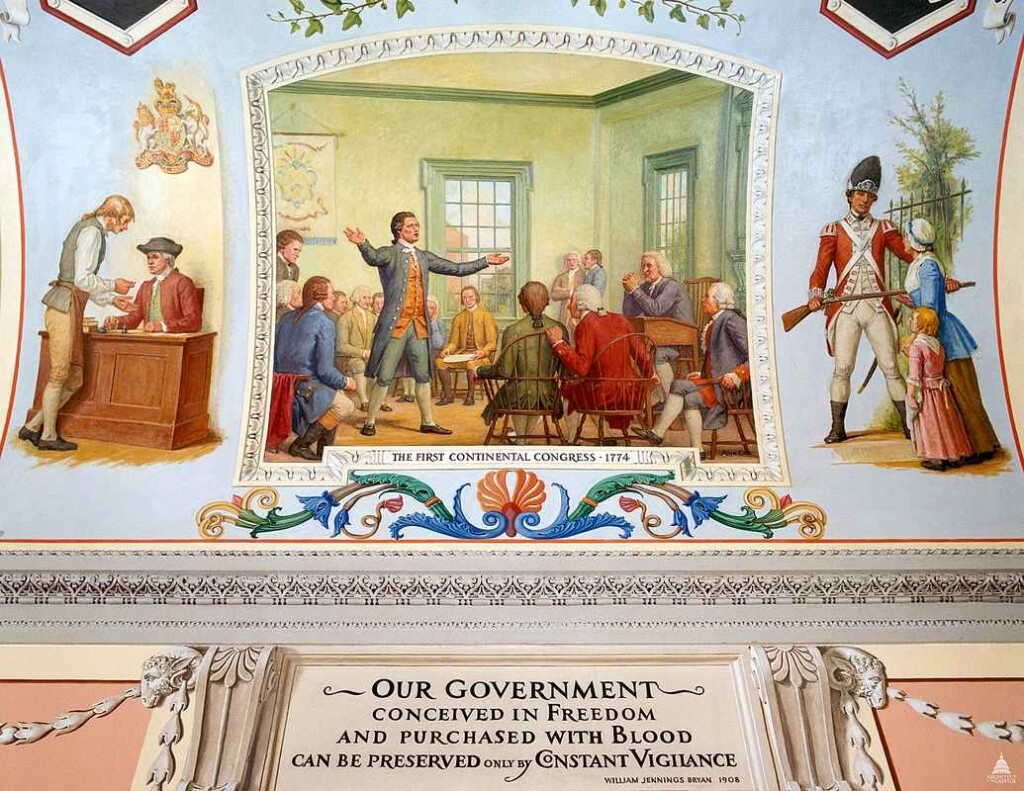
As the deliberations progressed, it became clear that those in attendance were not of one mind concerning why they were there. Conservatives such as Joseph Galloway, John Dickinson, John Jay, and Edward Rutledge believed their task to be forging policies to pressure Parliament to rescind its unreasonable acts.
Their ultimate goal was to develop a reasonable solution to the difficulties and bring about reconciliation between the Colonies and Great Britain.
Others such as Patrick Henry, Roger Sherman, Samuel Adams, and John Adams believed their task to be developing a decisive statement of the rights and liberties of the Colonies. Their ultimate goal was to end what they felt to be the abuses of parliamentary authority and to retain their rights, which had been guaranteed under Colonial charters and the English constitution.
The Houses of Assembly of each participating colony approved the proceedings of the Congress, with the exception of New York. The boycott was successfully implemented, but its potential for altering British colonial policy was cut off by the outbreak of hostilities in April 1775.
MORE Good News on this Day:
- The first United States Labor Day parade was held in New York City (1882)
- The Treaty of Portsmouth, which ended the Russo-Japanese War, was signed in New Hampshire (1905)
- Baseball legend Babe Ruth hit his first professional home run knocking in three runs; as the pitcher, he also threw a one-hitter that day for his Providence club that beat Toronto 9-0 (1914)
- Jimmy Carter opened 12 days of secret negotiations at Camp David between the two leaders Menachem Begin and Anwar Sadat that would soon lead to the signing of the first peace accord between Israel and any of its Arab neighbors (1978)
- The Indigenous and Tribal Peoples Convention of 1989, the current international treaty defending indigenous peoples, came into force (1991)
- Denmark celebrated the first national Flag Day, in memory of the fallen Danes in international operations since 1948 (2009)
- The United Nations declared today as International Charity Day, an annual celebration honoring the anniversary of the death of Mother Teresa of Calcutta and all the work that charities do worldwide (2012)
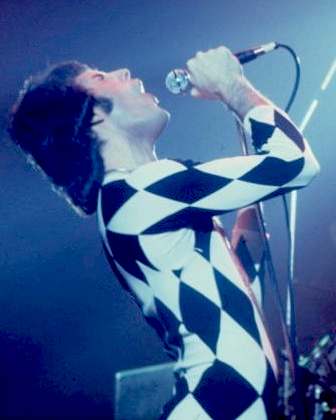
And on this day in 1946, Freddie Mercury, lead singer of the rock group Queen, was born.
Known for his remarkable four-octave vocal range, he wrote many of Queen’s classic songs, including ‘Bohemian Rhapsody’, ‘Somebody to Love’, and ‘We Are The Champions’. Born Farrokh Bulsara in Zanzibar, he grew up in India and learned to play piano at age seven. At 17, the family escaped racial violence and moved to England, where he joined Brian May and Roger Taylor and renamed their band Queen.
And on this day in 1957, On the Road by Jack Kerouac was first published. Based on the travels of Kerouac and his friends across the U.S., it was the defining novel of the Beat Generation–a term the author himself coined.
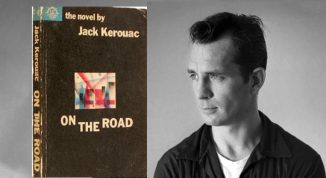
Reflecting the background of improvisational jazz, poetry, and drug use, Kerouac called the writing style “Spontaneous Prose.” Often named one of the top 100 novels of the 20th century, it featured key figures in the counter-culture movement, like William S. Burroughs, Allen Ginsberg, and Neal Cassady, with Kerouac as the narrator—all with fictionalized names. The way the text was produced as a nonstop scroll was also unique… Typed out on tracing paper and taped together into a continuous scroll during April 1951, the 120-feet of text, with no paragraph breaks, has appeared on display in museums worldwide, including one in Lowell, Massachusetts, the city where Kerouac was born. The book was also made into a 2012 film, entitled On the Road.
35 years ago today, the Indigenous and Tribal Peoples Convention (ILO) produced the first internationally binding treaty protecting the rights of such peoples to freely choose how much to assimilate into modern society or not. It laid the groundwork for the much more comprehensive Declaration on the Rights of Indigenous Peoples of 2007. However, the ILO Convention has still been used to win high court appeals against encroachment, illegal resource extraction, and assimilationsm in South America where the treaty has been almost universally ratified.
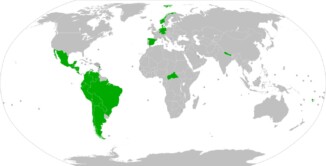
In November 2009, a court decision in Chile, considered to be a landmark in indigenous rights concerns, made use of the ILO convention law. The court ruled unanimously in favor of granting a water flow of 9 liters per second to Chusmiza and Usmagama communities. The legal dispute had dragged for 14 years, and centers on community water rights in one of the driest deserts on the planet.
The Supreme Court decision on Aymara water rights upholds rulings by both the Pozo Almonte tribunal and the Iquique Court of Appeals and marks the first judicial application of ILO Convention 169 in Chile.
Another example of the successful use of the ILO Convention in Chile, was the case of a Machi woman who brought legal action to protect a plot of land with herbs used for medicinal purposes, which was threatened by the forest industry. (1989)
44 years ago today, one of Switzerland’s greatest engineering feats in modern times was completed when the Gotthard Road Tunnel was opened to public use. Connecting the cantons of Uri and Ticino, it runs 10.5 miles (16.8 kilometers) underneath the St. Goddard’s Pass in the Alps.

The longest road tunnel on Earth was opened on September 5th, 1980. It remains a single-bore tunnel with just one lane operating in each direction. It has four large ventilation shafts and an additional side gallery with its own independent ventilation system in order to facilitate the cutting of a second tunnel, should future traffic levels require it, a clever use of foresight.
In March 2014, the Swiss Government approved a bill to allow the building of a second road tunnel. Construction was scheduled to start in 2020, with the cost estimated at almost CHF 3 billion. (1980)
54 years ago today, Janis Joplin began recording the song Me and Bobby McGee, written by her lover and friend Kris Kristofferson. With lines like, “I’d trade all my tomorrows for one single yesterday,” the tune topped the US singles chart in early 1971 after her death from an accidental drug overdose a few days after finishing this song. (1970)
95 years ago today, Bob Newhart was born in Oak Park, Illinois. Newhart passed away just 40 days ago. The stand-up comedian and actor is noted for his deadpan and slightly stammering delivery, and for creating the first blockbuster comedy hit.

In 1960, his album of comedic monologues, The Button-Down Mind of Bob Newhart, became a worldwide sensation. It reached number one on the Billboard pop album chart (the first comedy LP to do so) and won the Grammy for Album of the Year (the first comedy record to win that). His follow-up album, The Button-Down Mind Strikes Back was also a success, and the two albums held the Billboard No.1 and No.2 spots simultaneously.
Newhart later went into acting, starring as a psychologist in The Bob Newhart Show and then as a Vermont innkeeper on the 1980s series Newhart. Young people might know him for his film role as Papa Elf in the holiday movie Elf. Over the past decade, he has remained in the public eye thanks to a recurring role on The Big Bang Theory.
Many of his comedy routines involved hearing one one-half of a telephone conversation as he speaks to someone over the phone. In a bit called “King Kong”, a rookie security guard at the Empire State Building seeks guidance as to how to deal with an ape. Similarly, he did a telephone bit about Abe Lincoln talking to his press agent about improving his image for the election, and an uneasy police chief trying to talk a new nervous patrolman through defusing a live shell discovered on a beach.
In 2006, Newhart authored a book, I Shouldn’t Even Be Doing This, which is part memoir, part standup. He still performs occasionally and has been married to his wife Ginnie for 57 years. WATCH him on the David Letterman show… (1929)
Happy 73rd Birthday to actor Michael Keaton who was born in Pennsylvania and started his career in stand up comedy. A versatile performer, his early films included Mr. Mom, Batman, The Paper, and the incomparable Beetlejuice. More recently he starred in prestigious dramas like Spotlight and Birdman—which earned him his first Oscar nomination.
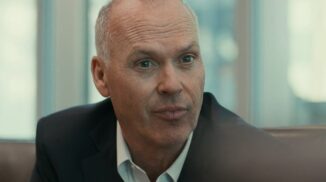
He just finished filming The Flash, in which he dons the Batman suit again, a role he originated in the 1989 Tim Burton Batman film series, which was the first of the modern superhero genre.
Yesterday, the Netflix film Worth debuted, ahead of the 20th anniversary of 9/11, in which Keaton plays the attorney who is distributing the $7 billion Sept. 11 Victims Compensation Fund. He also co-stars in The Protégé, a new action film, and he also plays a doctor up against the Oxycontin pharmaceutical machine in Dopesick, a limited series on Hulu.
In 2014, Keaton garnered critical acclaim for Birdman, which won him a Golden Globe Award for Best Actor. He also won three SAG Awards for Birdman, Spotlight, and the 2020 film, The Trial of the Chicago 7. WATCH his super-fun appearance on the Tonight Show last week… (1951)
In part two, he goofs around some more, and talks about revising his role as Batman…
SHARE the Milestones, Memories, and Movies…




















